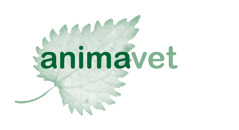
animal health consulting
Hendra: why not just go ahead and vaccinate?
Christine King BVSc, MANZCVS (equine), MVetClinStud
Table of Contents
Risks
Benefits
HeV antibody testing
HeV antibody testing
The CSIRO Australian Centre for Disease Preparedness (ACDP, formerly the Australian Animal Health Laboratory) in Geelong, Victoria offers the following tests on equine serum:
1. Hendra virus ELISA (enzyme-linked immunosorbent assay)
This test simply provides a positive/negative/inconclusive result; it does not give us a numerical value. However, in the 2018 study of diagnostic methods I've mentioned a few times, the breakpoint between "positive" and "inconclusive" was a virus neutralisation titre of 2.4. So, any horse with a titre of 2.4 or higher is likely to have a positive ELISA.
Although it does not provide a numerical result, this test is the less expensive of the two, and a positive result indicates the presence of HeV-specific, virus-neutralising antibodies. From it, we can also infer immunological memory. (Remember that antibody production is only one component of the immune response.)
If the result is positive, vaccination/booster may not be necessary at that time. If the result is negative, vaccination/booster may be considered, depending on the individual circumstances.
The current laboratory fee for this test is $139.70 per horse (including GST).
2. Hendra virus VNT (virus neutralisation test), or HeV titre*
This test is the 'gold standard' as it provides a numerical value. Based on the available research in horses, a titre of 16–32 is considered protective against HeV, although in real-world situations of HeV exposure the threshold is likely to be much lower (titre of 4 or less), as antibody production is rapidly increased in the face of challenge in horses who have prior experience with HeV, whether through natural exposure or vaccination (even a single dose).
If the titre is at least 32, vaccination/booster may not be necessary at that time. If the titre is 16 or lower, vaccination/booster may be considered, depending on the individual circumstances.
The current laboratory fee for this test is $457.60 per horse (including GST).
UPDATE 04 July 2024
* An alternative to costly titre testing, called a microsphere-based immunoassay (MIA), has recently been validated against the gold-standard VNT. In a study involving Thoroughbred mares and foals in the Hunter Valley (NSW), the MIA was shown to be a useful proxy for titre testing. Once it's commercially available, it should be much cheaper than titre testing because it does not require the use of live virus (as the VNT does). The results are reported as median fluorescence intensity (MFI), an MFI of 4,000 being approximately equivalent to a VNT of 32, and therefore expected to be protective against HeV infection.
Note that both of these tests (ELISA and VNT) require blood collection and submission by a registered veterinarian, so veterinary fees and shipping costs are additional.
***
Below is a link to a PowerPoint slideshow I made on how to use HeV antibody tests as proof of immunity, in place of proof of vaccination:
Hendra antibody tests —guidelines for vets, farm managers, and event organisers
© Christine M. King, 2021, 2022. All rights reserved.
Last updated 04 July 2024.
to article main page